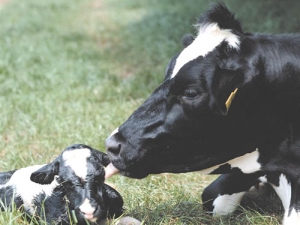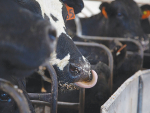The ban, which outlaws inducing late calving cows, bothered farmers when it was first announced. But farmers were given time to adjust to the change and this has minimised its impact, Mangnall says.
“As an industry we managed to get an agreement from ACVM (Agricultural Compounds and Veterinary Medicines) to work with farmers over time and get them reducing inductions in a managed way, rather than lose them overnight,” she told Rural News.
“Some progress was made straight away as many farmers saw the need to reduce. Even more progress was made when the percentage of inductions was capped and monitored,” Mangnall adds.
This began in the 2010-11 season, when new standards were introduced.This came following the review of the drug and the risks it posed, leading to the removal of its registration for routine inductions in 2005.
By the 2011-12 season, induction levels within an individual herd were limited to 8%, reducing to 4% the following season.
“I think we were very lucky to get a 10 year transition period. Those who came to terms with it earlier have probably suffered the least.”
Mangnall, a member of the dairy cattle veterinarians branch of the New Zealand Veterinarian Association, believes farmers have been well equipped to deal with the change.
She credits the use of tools such as the Fertility Focus Report, InCalf program, InfoVet analysis for reproductive performance and using aged pregnancy testing. These allow farmers to identify potential reproduction issues earlier and enable them to monitor and measure performance with greater accuracy.
“Most farmers have adjusted well and have worked within the 4% induction level for the past few years, so if they stick to the basics and get them right there should not be a big impact,” says Mangnall.
However, Marvin Pangborn, lecturer in farm management at Lincoln University, and a farm owner himself, believes the effects may be more noticeable next season following the low payout.
“Some farms will be short of funds to fully feed cows, which will result in lower body condition scores (BCS).”
Cows that calve at BCS 4.0 compared with BCS 5.0 are 7% less likely to be cycling at the planned start of mating (PSM). This can have further implications for a cow that has not cycled by the PSM having a 16% lower 6-week in calf rate and a 6% higher empty rate.
Pangborn says the lower payout may also lead farmers to AB their cows for a shorter time, putting more pressure on bulls. Should cows not get back in calf early enough, then they risk being culled.
“Cows that would have been induced in the past were culled in the autumn. The October cows that have been retained (but not induced) will produce at least 50kgMS less this lactation. This has led to needing more R2-year-olds and reduced the ability of the farms to cull cows on production.”
Mangnall supports the dispensation system, which allows farmers who have suffered extenuating circumstances outside their control to apply to a panel for dispensation. Examples where this has been granted include AB technician failure and disease outbreak.
She believes phasing out inductions was the right thing to do and had the warning signs been ignored it would only have been a matter of time before images or videos began appearing across the internet.
“This would tarnish the image of New Zealand farming as a whole and not just be confined to the reputation of the dairy industry.”











